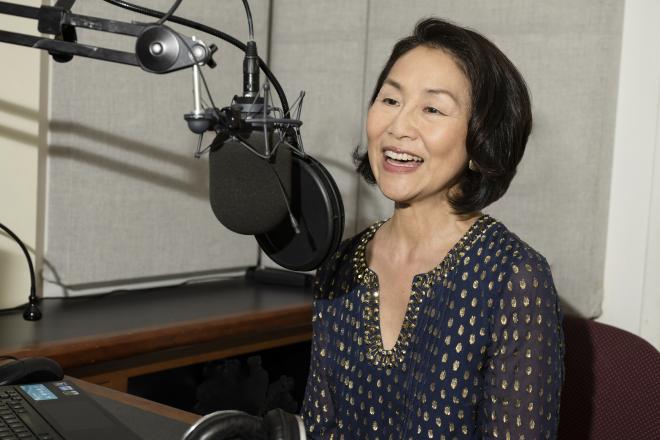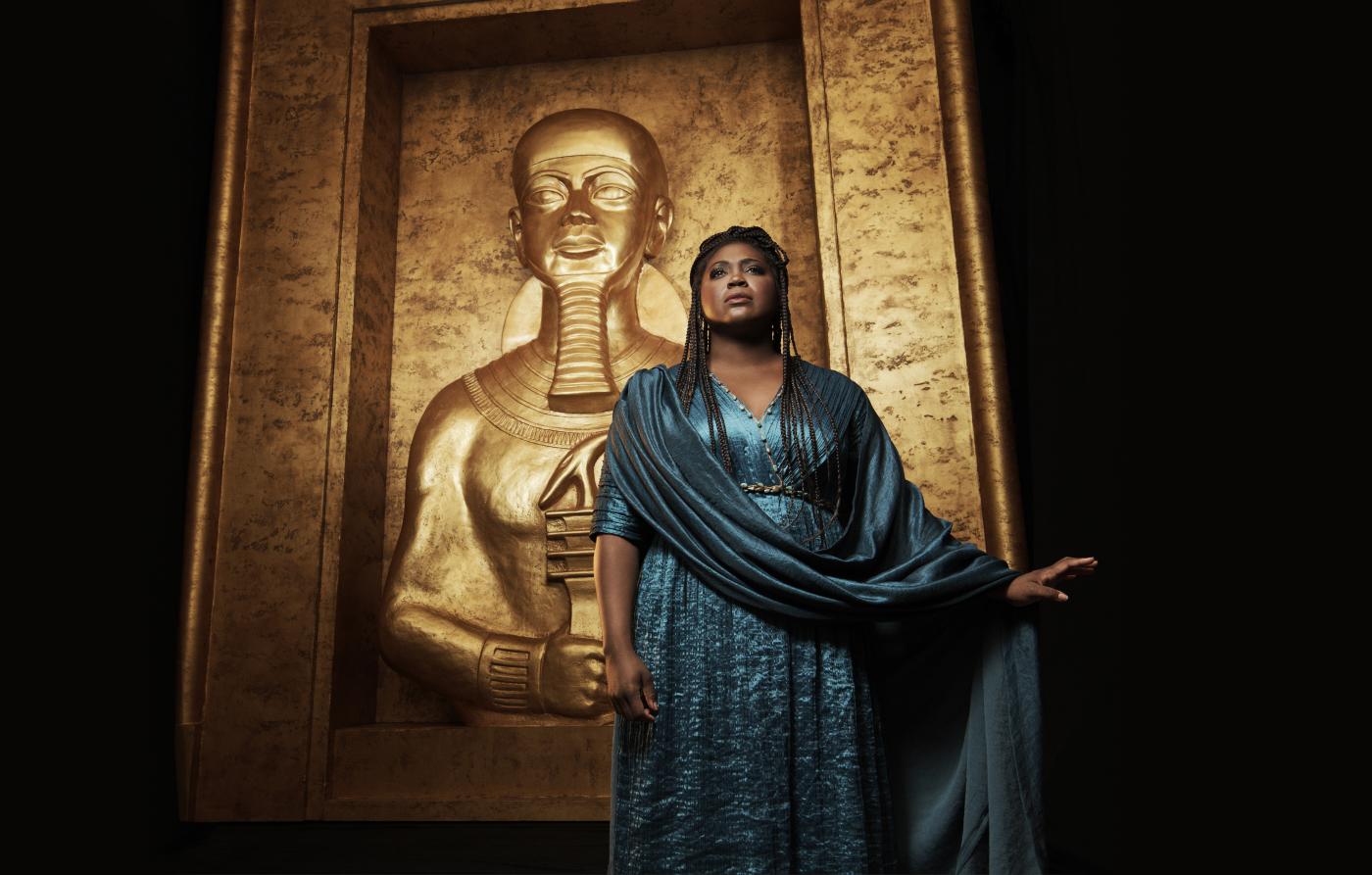Radio broadcasts of full-length Metropolitan Opera performances, transmitted live from the Met’s stage in New York City, have been a treasured tradition for more than 90 years, starting in 1931 -- and even earlier, if you count transmissions from a makeshift antenna on the roof of the Met’s then-opera house by the self-proclaimed “Father of Radio”, Lee de Forest, in 1910. As technology advanced, so did the reach of the broadcasts. Satellite transmission of live Met performances began during the 1980-81 season, followed by live transmissions to Europe in 1990. More than 1,800 world-wide simulcasts and three Peabody Awards later, the Met continues to share its artistic wealth via broadcasts to more than 40 countries on five continents. In fact, these simulcasts constitute the longest-running continuous classical music radio program. They certainly serve as a vital cultural resource, offering the opera experience not only to areas with a vibrant cultural scene, but also to communities that may not otherwise experience live opera performances. The Met even served as an important cultural force during the war effort of the Second World War, when intermission features called “Victory Rallies” presented messages from noted figures of the Allied countries, including First Lady Eleanor Roosevelt.
Even the broadcast announcers – only five in the history of the broadcasts – are part of the experience. From Milton Cross, who served 43 seasons from 1931 to 1975, to Peter Allen, Margaret Juntwait, Mary Jo Heath, and the current announcer, Debra Lew Harder, each host is like a friend, congenially guiding us through the narrative and history of each opera. And of course, there’s the popular, long-running Opera Quiz, an entertaining intermission feature that challenges a panel of opera experts, and the audience, to correctly answer opera trivia questions.
To this day, the Met remains one of the world’s leading opera companies, in line with La Scala, Royal Opera House and Bayreuth. Its exalted status has attracted premiere opera singers throughout its history, including the iconic Kirsten Flagstad, who made a splash with her U.S. debut in the Met’s live broadcast of Wagner’s Die Walkϋre, as well as Luciano Pavarotti, Leontyne Price, Samuel Ramey, Joan Sutherland, Jessye Norman, Robert Merrill, Maria Callas, Placido Domingo, Renée Fleming and countless others. And its roster of noted conductors, including the legendary Arturo Toscanini, Fritz Reiner, Leonard Bernstein, and even Gustav Mahler, has guided the Met’s first-class orchestra. Current Music Director Yannick Nézet-Séguin has taken the Met to even greater artistic heights and has incorporated significant works by contemporary composers, many of which address social issues. The Met has also premiered many important operas, such as Puccini's La fanciulla del West, John Corigliano's The Ghosts of Versailles, and Ken Puts's The Hours.
WETA Classical is pleased and proud to be part of the Met’s storied broadcast tradition, and continues its commitment with the 2024-2025 broadcast season, which gets underway this month. Here are a few highlights.
The 2024-2025 season opens December 7 with the Met’s Music Director Yannick Nézet-Séguin conducting Richard Strauss’s rarely-heard Die Frau ohne Schatten, composed 1911-1915 and renowned for its intricate psychological depth and lavish score in an allegorical tale of rebirth and human connection through marriage and children. December 14 is the Met premiere of Jeanine Tesori’s Grounded, a thrilling 2023 adaptation of George Brant’s award-winning play of one woman’s journey from U.S. Air Force combat pilot to virtual drone operator, and the psychological tolls of modern warfare. Mozart’s enchanting musical fairy tale, The Magic Flute, returns as a beloved holiday tradition on December 21. This abridged, English-language production beautifully depicts a rescue from darkness to light and enlightenment -- perfect family entertainment. The holiday festivities continue on December 28 with Engelbert Humperdinck’s sweeping interpretation of the Brothers Grimm fairy tale, Hansel and Gretel, in an archival performance from 1982 starring Frederica von Stade and Judith Blegen.
As the season unfolds, we’ll hear perennial favorites, like Mozart’s charming comedy, The Marriage of Figaro; Puccini’s heartrending La bohème and dramatic Tosca; and the tragic Rigoletto and grand-scale Aida of Giuseppe Verdi, to name a few. In March, the Met dips into its archives for a 1981 performance of Maurice Ravel’s fantastical L’Enfant e les sortileges to commemorate that opera’s 100th anniversary. And the popular Listener's Choice broadcast -- an historical performance selected by listener votes – returns in May 2025.
New this year is an “Artist’s Choice” series during the month of February that will showcase stellar past Met performances selected by current opera stars. It’s a treasure trove of notable achievements of Jessye Norman, Renée Fleming, Leonard Bernstein and George London.
In addition, three Met premieres are on tap in this new season: Ainadamar (Fountain of Tears) by Argentinian composer Osvaldo Golijov, based on the life of writer Federico Garcia Lorca, who faced political persecution and execution during the Spanish Civil War; John Adams’s Antony and Cleopatra, adapted from the Shakespeare play; and Moby Dick by Jake Heggie, based on Herman Melville’s classic novel.
Experience opera with us! Opera Matinee is each Saturday afternoon on WETA Classical, but please check here each week for updated information, as Met start times may vary and schedule adjustments may be made. And be sure to check our blog, Classical Score, for my series of interviews with Washington, D.C.-based opera scholar Saul Lilienstein, for in-depth analyses of the Verdi masterpieces scheduled this season.
WETA Passport
Stream tens of thousands of hours of your PBS and local favorites with WETA Passport whenever and wherever you want. Catch up on a single episode or binge-watch full seasons before they air on TV.


